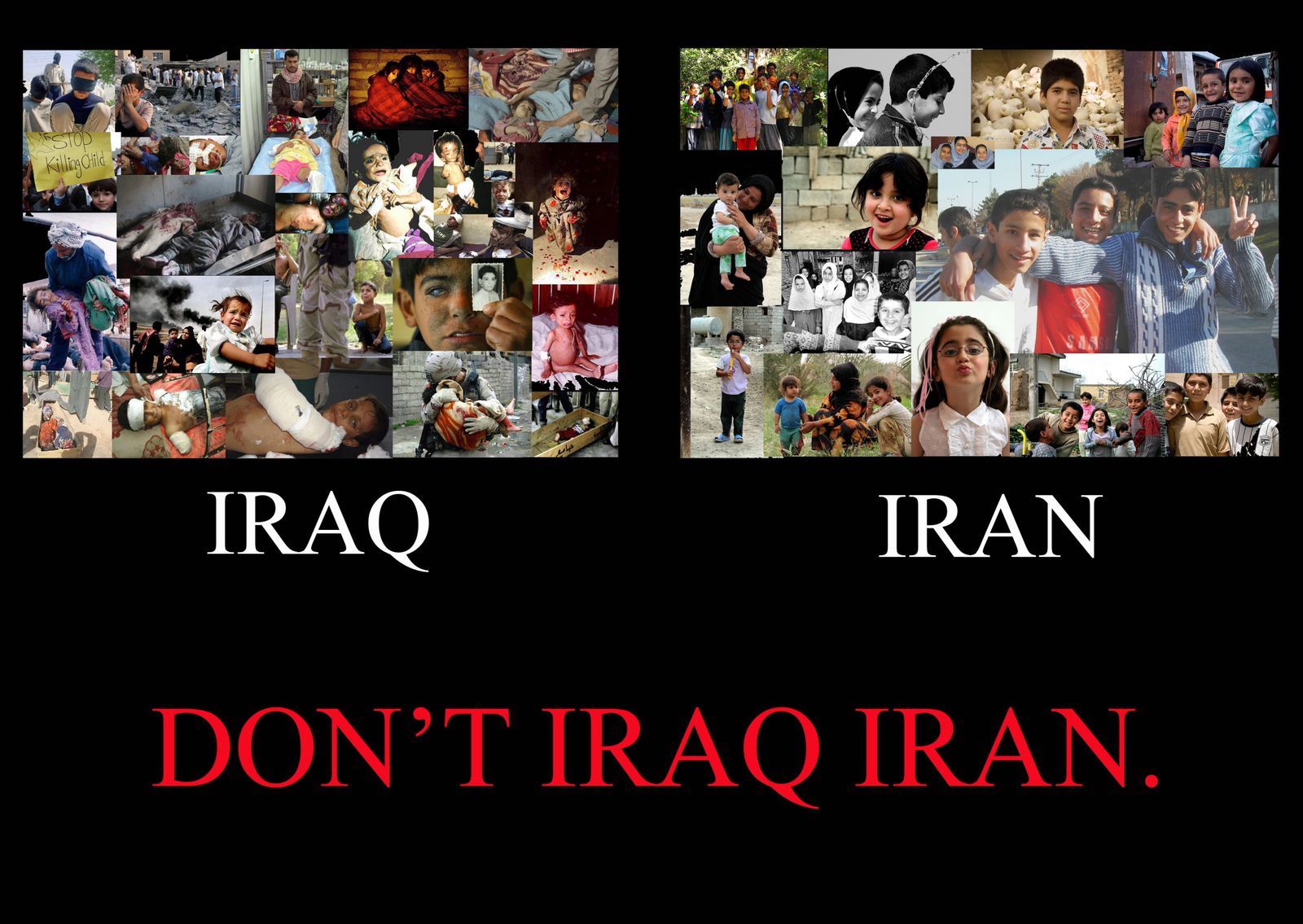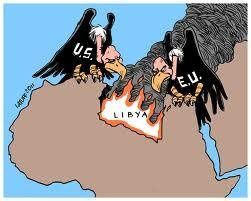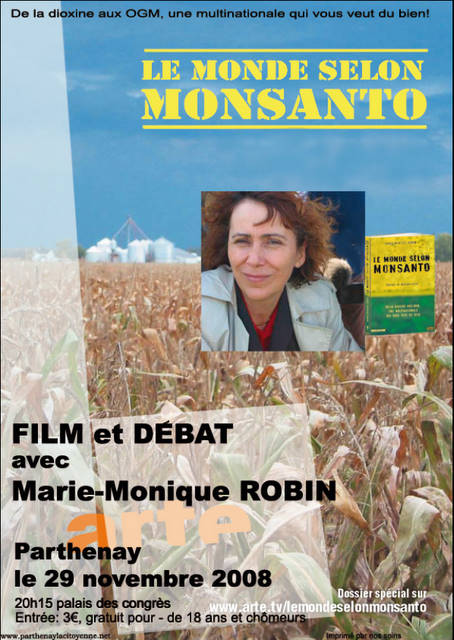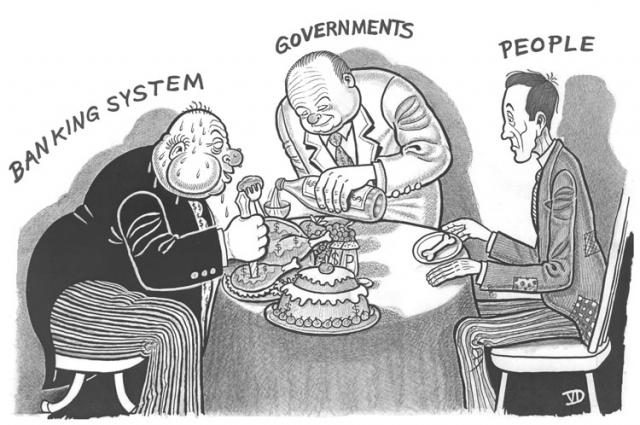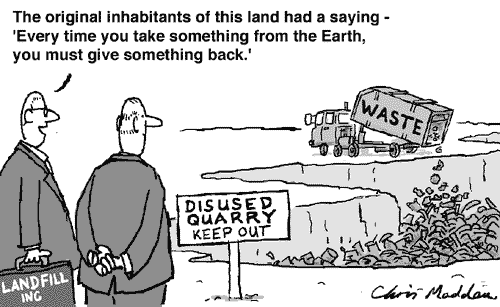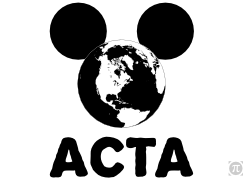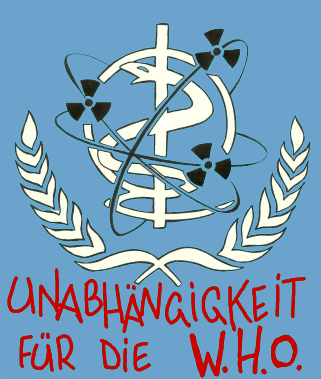internationalnews
A Film by Alex Jones - March 15, 2009
The views expressed in this article are the sole responsibility of the author and do not necessarily reflect those of IN
Says global necessities should foster an “age of compatible interests”
Steve Watson

Bilderberg luminary Henry Kissinger has repeated his routine call for a new international political order, stating that global crises should be seen as an opportunity to move toward a borderless world where national interests are outweighed by global necessities.
Speaking with Charlie Rose earlier this week, Kissinger cited the chaos being wrought across the globe by the financial crisis and the spread of terrorism as an opportunity to bolster a new global order.
"I think that when the new administration assess the position in which it finds itself it will see a huge crisis and terrible problems, but I can see that it could see a glimmer in which it could construct an international system out of it." Kissinger said, referring to the transition between the Bush and Obama administrations.
The former National Security advisor and Secretary of State compared the current world climate to the period immediately following the second world war, which led to the creation and empowerment of global bodies such as the UN and NATO.
"If you look back to the end of the second world war, many people now think that the period between the end of 1945 and 1950 was in many ways the most creative period or one of the most creative periods of foreign policy, but it started with chaos and fear of Russian invasion of Europe and governments that were very weak." Kissinger stated.
"The new administration is really coming into office at a strange period in this sense," he continued. "It looks like a period of horrendous crisis all over the world. And we ourselves are in a severe crisis financially, but at the end of it our relative position in the world is actually stronger than it has been in the sense that Russia, China, India all have strong reasons to contribute to a quiet international environment because of the preoccupation they must have with their domestic affairs."
"They do not wish and have good reasons not to wish for an international atmosphere of crisis. So Paradoxically, this moment of crisis is also one of great opportunity." Kissinger commented.
Interviewer Charlie Rose, who has previously listened to Kissinger’s calls for a new world order, recognized the direction the conversation was taking and urged Kissinger to elaborate:
"When you talk about a new structure, I’m not sure, you’ve used the term new world order, what is it? Is it simply a world order that is defined by new interest and new mutuality of interest?" Rose asked.
"That’s certainly how you have to start. I know the view that you start by converting the whole world to our political philosophy. I don’t think that can be done in one or two terms of an administration. That is an historic process that has its own rhythm." Kissinger replied.
"There are so many elements in this world at the moment that can only be dealt with on a global basis, and that’s unique," Kissinger continued. "Proliferation, energy, environment, All of these issues necessitate a global approach, so you don’t have to invent an international order. So every country has to mitigate its pure national interests by the global necessities, or define it’s national interests by global necessities But it cannot push its own technically selfish interests only by throwing its own weight around." he stated.
Kissinger also related that he has been struck by how much the move toward a new global order has been enhanced by the recent crises.
"The jihadist crisis is bringing it home to everybody, that international affairs cannot be conducted entirely by drawing borders and defining international politics by who crosses what borders with organized military force." he said.
"This has now been reinforced by the financial crisis, which totally unexpectedly has spread around the world. It limits the resources that each country has for a foreign policy geared to an assertion of its own pure interests."
Kissinger claimed that the key players in international politics, India, China, Russia, America, Europe, should recognize they have parallel concerns and work together to forge what he termed an "age of compatible interests".
"I’m not saying that leaders will be up to all the opportunities that I may perceive but I think they can start moving in that direction and I’m actually fairly hopeful that we will be moving in that direction." Kissinger said.
Watch the full interview below. :
http://www.infowars.com/?p=6663
Internationalnews

"L’idée n’est pas nouvelle, mais elle a été, pour la première fois, sérieusement avancée dans l'édition du 10 octobre 2008 du Wall Street Journal comme étant la seule solution à la crise financière mondiale, et a reprise immédiatement par tous les subordonnés du Nouvel ordre mondial, dont Jacques Attali (France2, journal de 20h, 10.10.08).
Photos: medias.lepost.fr
Tous les articles de Jacques Attali sur IN:
Jacques Attali réclame une monnaie mondiale (+dossier Attali)
Attali et la tracabilité des êtres humains grâce à la puce rfidJacques attali: "les bases d'un véritable gouvernement mondial"
Url de cet article: http://www.internationalnews.fr/article-Jacques Attali se prononce ouvertement pour "un Gouvernement Mondial"-NaN.html
De : GrandChessboard
CounterCurrents
17 November, 2008
Vdare

"The prospects of a government rescue for the foundering American automakers dwindled Thursday as Democratic Congressional leaders conceded that they would face potentially insurmountable Republican opposition," reported the NY Times last Friday. [Chances Dwindle On Bailout Plan For Automakers, By David M. Herszenhorn, November 13, 2008]
Wow! The entire country is steamed up over the Republicans bailing out a bunch of financial crooks who have paid themselves fortunes in bonuses for destroying America’s pensions. Why do Democrats want to protect Republicans from further ignominy by not giving them the opportunity to vote down a bailout for workers? Quick, someone enroll the Democratic Party in Politics 101.
GM’s divisions in Canada and Germany are asking those governments for help. It will be something if Canada and Germany come through for the American automaker and the American government doesn’t.
Conservative talking heads are saying GM is a "failed business model" unworthy of a $25 billion bailout. These are the same talking heads who favored pouring $700 billion into a failed financial model.
The head of the FDIC is trying to get $25 billion--a measly 3.5 percent of the $700 billion for the banksters--with which to refinance the mortgages of 2 million of the banksters’ victims, and Bush’s Secretary of the Treasury Paulson says no. Why aren’t the Democrats all over this, too?
Apparently, the Democrats still think they are the minority party—or else their aim is to supplant the Republicans as the party of the rich.
Any bailout has its downsides. But if America loses its auto industry, it will lose the suppliers as well and will cease to have a manufacturing sector. For years no-think economists have been writing off America’s manufacturing jobs, while deluding themselves and the public with propaganda about a New Economy based on finance.
A country that doesn’t make anything doesn’t need a financial sector as there is nothing to finance.
The financial crisis has had one good effect. It has cured Democratic economists like Robert Reich and Paul Krugman of fear of budget deficits. During the Reagan years these two economists saw doom in the "Reagan deficits" despite the fact that OECD data showed that the US at that time had one of the lowest ratios of general government debt to GDP in the industrialized world.
Today Reich and Krugman are unfazed by their recommendations of budget deficits that are many multiples of Reagan’s. Moreover, neither economist has given the slightest thought as to how the massive budget deficit that they recommend can be financed.
Both recommend large public spending programs. Krugman puts a price tag of $600 billion on his program. If it takes $700 billion to save the banks and only $600 billion to save the economy, it sounds like a good deal. But this $600 billion is on top of the $700 billion for the banks, the $200 billion for Fannie Mae and Freddie Mac, and the $85 billion for AIG. These figures add to one trillion five hundred eighty-five billion dollars, a sum that must be added to the budget deficit due to war and recession (or worse).
What we are talking about here is a minimum budget deficit of $2 trillion. The US has never had to finance a deficit of this magnitude. Where is the money coming from?
The US Treasury doesn’t have any money, and neither do Americans, who have lost up to half of their savings and retirement funds and are up to their eyeballs in mortgage and consumer debt. And unemployment is rising.
There are only two sources of financing: foreign creditors and the printing press.
I doubt that foreigners have $2 trillion to lend to the US. Thanks to the toxic US financial instruments, they have their own bailouts to finance and economies to stimulate. Moreover, I doubt that foreigners think the US can service a public debt that suddenly jumps by $2 trillion. At 5 percent interest, the additional debt would add $100 billion to the annual budget deficit. In order to pay interest to creditors, the US would have to borrow more money from them.
Economists and policy-makers are not thinking. This enormous financing need comes not to a well-managed economy that can take the additional debt in its stride. Instead, it comes to an economy so badly managed that there are no reserves.
Massive US trade deficits have been financed by giving up US assets to foreigners, who now own the income flows as well. Budget deficits from 6 years of pointless wars and from unsustainable levels of military spending have helped to flood the world with dollars and to drive down the dollar’s exchange value. Consumers themselves are drowning in debt and can provide no lift to the economy. Millions of the best jobs have been moved offshore, and research, design, and innovation have followed them. Considering America’s dependency on imports, part of any stimulus package that reaches the consumer will bleed off to foreign countries.
Generally, when countries acquire more debt than they can service, they inflate away the debt. If foreign creditors do not save the Obama administration, the Treasury will print bonds and give them to the Federal Reserve, which will issue money.
The inflation will be severe, particularly as Americans will not be able to pay for the imports of manufactured goods from abroad on which they have become dependent. The exchange value of the dollar will decline with the domestic inflation. Once inflation is off and running, the printing press dollars will only have goods made in America to chase after. The real crisis has not yet begun.
Paulson should rethink the automakers’ and FDIC’s proposals. A bank produces nothing but paper. Automakers produce real things that can be sold. Occupied homes are worth more than empty ones.
Paulson’s inability to see this is the logical outcome of Wall Street thinking that highly values deals made over pieces of paper at the expense of the real economy.
Paul Craig Roberts [email him] was Assistant Secretary of the Treasury during President Reagan’s first term. He was Associate Editor of the Wall Street Journal.
http://www.countercurrents.org/roberts171108.htm
| Article original en anglais, Obama's Council on Foreign Relations Crew, Infowar.com, le 7 novembre 2008 Est-ce que ces gens vont créer un « changement », ou est-ce qu’ils continueront de soutenir le même système retranché, établi par l’élite de corporation pendant des décennies?
| |
IgnoranceIsntBliss
Un article à relire...
___________________________________________________________________
Le Monde Diplomatique Archives
décembre 1997 - Page 1
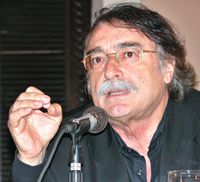
Désarmer les marchés
Par Ignacio Ramonet
LE typhon sur les Bourses d’Asie menace le reste du monde. La mondialisation du capital financier est en train de mettre les peuples en état d’insécurité généralisée. Elle contourne et rabaisse les nations et leurs Etats en tant que lieux pertinents de l’exercice de la démocratie et garants du bien commun.
La mondialisation financière a d’ailleurs créé son propre Etat. Un Etat supranational, disposant de ses appareils, de ses réseaux d’influence et de ses moyens d’action propres. Il s’agit de la constellation Fonds monétaire international (FMI), Banque mondiale, Organisation pour la coopération et le développement économiques (OCDE) et Organisation mondiale du commerce (OMC). Ces quatre institutions parlent d’une seule voix - répercutée par la quasi- totalité des grands médias - pour exalter les « vertus du marché ».
Cet Etat mondial est un pouvoir sans société, ce rôle étant tenu par les marchés financiers et les entreprises géantes dont il est le mandataire, avec, comme conséquence, que les sociétés réellement existantes, elles, sont des sociétés sans pouvoir (1). Et cela ne cesse de s’aggraver. (Lire, pages 12 à 15, notre dossier sur la crise financière actuelle.)
Succédant au GATT, l’OMC est ainsi devenue, depuis 1995, une institution dotée de pouvoirs supranationaux et placée hors de tout contrôle de la démocratie parlementaire. Une fois saisie, elle peut déclarer les législations nationales, en matière de droit du travail, d’environnement ou de santé publique, « contraires à la liberté du commerce » et en demander l’abrogation (2). Par ailleurs, depuis mai 1995, au sein de l’OCDE, et à l’écart des opinions publiques, se négocie le très important Accord multilatéral sur les investissements (AMI), qui devrait être signé en 1998, et qui vise à donner les pleins pouvoirs aux investisseurs face aux gouvernements.
Le désarmement du pouvoir financier doit devenir un chantier civique majeur si l’on veut éviter que le monde du siècle à venir ne se transforme en une jungle où les prédateurs feront la loi.
Quotidiennement, quelque 1 500 milliards de dollars font de multiples allers et retours, spéculant sur des variations du cours des devises. Cette instabilité des changes est l’une des causes de la hausse des intérêts réels, qui freine la consommation des ménages et les investissements des entreprises. Elle creuse les déficits publics et, par ailleurs, incite les fonds de pension, qui manient des centaines de milliards de dollars, à réclamer aux entreprises des dividendes de plus en plus élevés. Les premières victimes de cette « traque » du profit sont les salariés, dont les licenciements massifs font bondir la cotation boursière de leurs ex- employeurs. Les sociétés peuvent-elles longtemps tolérer l’intolérable ? Il y a urgence à jeter des grains de sable dans ces mouvements de capitaux dévastateurs. De trois façons : suppression des « paradis fiscaux » ; augmentation de la fiscalité des revenus du capital ; taxation des transactions financières.
LES paradis fiscaux sont autant de zones où règne le secret bancaire, qui ne sert qu’à camoufler des malversations et d’autres activités mafieuses. Des milliards de dollars sont ainsi soustraits à toute fiscalité, au bénéfice des puissants et des établissements financiers. Car toutes les grandes banques de la planète ont des succursales dans les paradis fiscaux et en tirent grand profit. Pourquoi ne pas décréter un boycottage financier, par exemple, de Gibraltar, des îles Caïmans ou du Liechtenstein, par l’interdiction faite aux banques travaillant avec les pouvoirs publics d’y ouvrir des filiales ?
La taxation des revenus financiers est une exigence démocratique minimale. Ces revenus devraient être taxés exactement au même taux que les revenus du travail. Ce n’est le cas nulle part, en particulier dans l’Union européenne.
La liberté totale de circulation des capitaux déstabilise la démocratie. C’est pourquoi il importe de mettre en place des mécanismes dissuasifs. L’un d’entre eux est la taxe Tobin, du nom du Prix Nobel américain d’économie qui la proposa dès 1972. Il s’agit de taxer, de manière modique, toutes les transactions sur les marchés des changes pour les stabiliser et, par la même occasion, pour procurer des recettes à la communauté internationale. Au taux de 0,1 %, la taxe Tobin procurerait, par an, quelque 166 milliards de dollars, deux fois plus que la somme annuelle nécessaire pour éradiquer la pauvreté extrême d’ici au début du siècle (3).
De nombreux experts ont montré que la mise en oeuvre de cette taxe ne présente aucune difficulté technique (4). Son application ruinerait le credo libéral de tous ceux qui ne cessent d’évoquer l’absence de solution de rechange au système actuel.
Pourquoi ne pas créer, à l’échelle planétaire, l’organisation non gouvernementale Action pour une taxe Tobin d’aide aux citoyens (Attac) ? En liaison avec les syndicats et les associations à finalité culturelle, sociale ou écologique, elle pourrait agir comme un formidable groupe de pression civique auprès des gouvernements pour les pousser à réclamer, enfin, la mise en oeuvre effective de cet impôt mondial de solidarité.
(1) Lire André Gorz, Misères du présent, richesse de l’avenir, Galilée, Paris, 1997 ; ainsi que la communication de Bernard Cassen au colloque « La social-démocratie à l’heure de la mondialisation », organisé par le Parti québécois (PQ), à Québec, les 27 et 28 septembre 1997. Par ailleurs, le Groupe de Lisbonne, présidé par Riccardo Petrella, va prochainement publier aux éditions Labor, à Bruxelles, une étude intitulée Le Désarmement financier.
(2) Cf. François Chesnais, La Mondialisation du capital, Syros, Paris, 1997 (nouvelle édition augmentée).
(3) Rapport sur le développement humain 1997, Economica, Paris, 1997.
(4) Cf. Mahbub Ul Haq, Inge Kaul, Isabelle Grunberg, The Tobin Tax : Coping with Financial Volatility, Oxford University Press, Oxford, 1996. Lire Le Monde diplomatique, février 1997.
http://www.monde-diplomatique.fr/1997/12/RAMONET/9665 - décembre 1997
By Richard C. Cook
With the presidential election only a week away, the financial crisis has been dominating the news, but behind it is an even larger question of war vs. peace. This Global Research article will appear in a forthcoming issue of Eurasia Critic magazine.
World war or world peace is the blunt choice that will face either Barack Obama or John McCain when one of them is elected president of the United States on Tuesday, November 4, 2008.
For a major eruption of violence to be averted, the new president must deal positively with the reappearance of Russia on the world stage, the emergence of China as an economic force, and the aspirations of all the nations on earth for a decent and secure way of life.
Making matters much more dangerous are the ongoing financial crisis, along with what appears to be the start of a worldwide economic recession of as yet undetermined depth and duration.
It is Europe, not the U.S., from which proposals are emerging for a transformative approach to the most compelling issues. But will it be enough?
THE DISASTROUS PRESIDENCY OF GEORGE W. BUSH
In December 2000, at the time the U.S. Supreme Court was intervening in the disputed vote count in Florida to name Republican George W. Bush president over Democrat Al Gore, the stock market began to crash. The “dot.com” bubble, based largely on foreign investment in internet companies and technology stocks, deflated. By the time Bush was inaugurated in January 2001, signs of a recession were appearing.
This did not prevent the Bush administration from initiating a $450 billion tax cut for the upper income brackets that Congress approved in March 2001. A similar cut was subsequently enacted in May 2003.
In September 11, 2001, the World Trade Center’s Twin Towers in New York City were attacked by airplanes flying into them, followed that morning by an air attack on the Pentagon in Washington, D.C.
Terrorists from Al Qaeda, an organization of Islamic extremists associated with the Afghan mujaheddin, and a Saudi figure, Osama bin Laden, alleged to be their leader, were blamed. The wealthy bin Laden family had close ties to the U.S. and the Bush family.
Within a few weeks, the Bush administration pulled a battle plan from the shelves of the Pentagon and invaded Afghanistan. The object was to wrest control of that nation from the Taliban, supposedly Al Qaeda collaborators. A new U.S. Asian land war had begun.
In March 2003, the Bush administration added to the Afghan action the second invasion of Iraq in the past thirteen years, following the “Shock and Awe” aerial attack. The assaults on Afghanistan and Iraq, with torture of prisoners, use of depleted uranium weapons, and killing of civilians, was methodical and brutal.
Americans who had opposed the Vietnam War in the 1960s and 70s were appalled at how history was repeating itself. The public was subjected to a relentless barrage of pro-war propaganda by square-jawed military talking heads
Behind the scenes were the international financial and oil interests who stood to benefit from the removal of Iraqi president Saddam Hussein as an independent actor in the Middle East. Financiers like David Rockefeller, who had founded the Trilateral Commission and was one of the “internationalist” leaders of what had come to be called the “New World Order,” tended to remain in the shadows, but their presence was palpable.
Rockefeller had reportedly expressed his world view in a statement at a 1991 meeting of the Bilderberg Group:
“The supra-national sovereignty of an intellectual elite and world bankers is surely preferable to the national auto-determination practiced in past centuries.”
With respect to most of the U.S. military actions after World War II, especially the ones after Ronald Reagan was elected president in 1980, an argument could be made that the internationalists were using the U.S. military as their personal global police force.
Even so, the Neocons—“new conservatives”—who had rushed to the forefront after September 11, 2001, working chiefly through Secretary of Defense Donald Rumsfeld and Vice-President Richard Cheney, seemed to be a more radical element than the officials who had been in charge during the Clinton years, when the U.S. and NATO went to war against Serbia. Many of the Neocons were Jewish, with strong ties to Israel.
In 1997 the Neocons had created the Project for a New American Century, which advocated a new invasion of Iraq, and published a statement that positive change might result from a “catalyzing event—a new Pearl Harbor.” Later this was interpreted as possibly having foreshadowed the 9/11 attacks.
President George W. Bush justified the Iraq invasion by claiming that the regime of Saddam Hussein possessed weapons of mass destruction. Later this claim proved to be a lie.
To many the attack was a simple act of aggression. Kofi Annan, Secretary General of the U.N. said of the invasion on September 16, 2004, “I have indicated it was not in conformity with the U.N. charter. From our point of view, from the charter point of view, it was illegal.” The U.S. paid no attention to Annan’s misgivings.
The U.S. attack on Iraq was not without controversy, even among the international elite. According to Daniel Estulin, writing in his breakthrough book, The Bildergerg Group, the Europeans at the 2001 Bilderberg Conference summoned Donald Rumsfeld and blasted him for prematurely planning an attack on Iraq that year. But by 2003, says Estulin, they were prepared to endorse it. Still, the U.S. had far less active support from other nations than with the 1991 invasion of Iraq under George W. Bush’s father.
WARS ARE NOT CHEAP
Starting in 2001, the Bush administration had increased the frequency of White House meetings with Alan Greenspan, chairman of the Federal Reserve, who lowered interest rates by 550 basis points from January 2001 to June 2003. This succeeded in floating the U.S. economy through injecting a huge amount of cash into what came to be called the “housing bubble.”
It’s consumer spending that keeps the U.S. economy running, but ever since the 1980s, when we began to export so many of our manufacturing jobs, family income had stagnated. It has been established by researchers, and documented as well by Daniel Estulin, that at a certain point the financial elite made the momentous decision that the U.S. would be de-industrialized. According to one account, this decision had been a topic of discussion in meetings in China, after Nixon’s visit there in 1972, that were held among David Rockefeller, Secretary of State Henry Kissinger, and Chinese Premier Chou En-Lai.
When Rockefeller and Columbia University professor Zbigniew Brzezinski—later President Jimmy Carter’s national security adviser—formed the Trilateral Commission in 1973, the plan to turn the U.S. into a financial/service economy instead of the world’s greatest industrial democracy seemed to become a key objective. How well this program succeeded is shown by statistics from the website Economy in Crisis:
· From 1978 to July 2008, more than 16,613 U.S. companies were sold to foreign corporations.
· The steel, publishing, textile, machine tool, automobile, and electronics industries declined sharply.
· By 2006 American manufacturers suffered a twenty-two percent structural cost disadvantage compared to overseas competitors through taxes, health and pension benefits, litigation, regulation, and unequal environment protection.
· In 2006, $1 in $4 of US consumption on manufactured goods went immediately and directly to imports.
· In 2007 China alone exported over $321 billion in goods to the United States compared to the $62 billion in goods we exported to them. The U.S. trade deficit, estimated to exceed $800 billion in 2008, is costing $1.5 million per minute in remittance to foreign companies.
· Three million high-paying manufacturing jobs were lost between 2000 and 2005 alone. The U.S. lost 63 thousand jobs just in February of 2008.
· Foreign manufacturers operating in the U.S. accounted for over twenty percent of our exports and manufacturing assets, and a large percentage of our employment in 2006.
· As of December, 2007, the U.S owed fifty-three percent of its debt to foreign countries and other international interests. This is 25.5 percent of our total national deficit, and we finance nearly 100 percent of all new borrowings from foreign interests. Our competitors are now our bankers.
· High-paying goods-producing industries have lost net employment over the past twenty-seven years, while lower paying non-tradable services-providing employment has doubled.
· In 2004, China and India graduated a combined 950,000 engineers versus 70,000 in the U.S. The United States ranks near the bottom of science/math proficiency
Beginning around 1991-92, with cheap credit now flowing from the Federal Reserve System, home prices soared. The money from new mortgages and home equity loans became a virtual “cash cow” for families strapped for cash.
The federal government had already been taking steps during the 1990s to ease mortgage credit so that more families could purchase homes. But after 2001, many more loans were based on fraudulent mortgage applications, where brokers exaggerated borrower incomes. ABC News later reported that during this period risk analysts at Washington Mutual, one of the nation’s largest banks, were told to ignore high risk loans because lending had to be maximized. Those who objected were disciplined or fired.
On Wall Street, banks that wrote mortgages began to offload them by packaging them into mortgage-backed securities that were sold around the world as bonds to banks and investors. Risk analysts at the leading credit-rating agencies, such as Standard and Poor’s, Moody’s, and Fitch, gave their highest ratings to mortgage-backed securities whose risks were later acknowledged to be grossly underestimated.
Also, mortgage companies, with Alan Greenspan’s endorsement, began to offer more Adjustable Rate Mortgages (ARMs), loans that would reset at higher rates in future years. Mortgage brokers fed the growing bubble by telling people they should buy now, because housing prices would keep going up and they could resell at a profit before their ARMs escalated.
As a result of the bubble, large amounts of money began to flow into the economy, not only from mortgages and home equity loans, but also from capital gains on the resale of inflating property. Meanwhile, in the world of investment securities, the Securities and Exchange Commission reduced the amount of their own capital investors were required to bring to the table, resulting in a large increase in bank leveraging of speculative trading. This fed additional bubbles in the equity, hedge fund, derivatives, and commodities markets. The SEC also eliminated most of its Office of Risk Management through budget cuts.
According to an April 2008 Washington Post article by New York governor Elliot Spitzer, state attorneys-general who wanted to investigate allegations of mortgage fraud were blocked from doing so by the Office of the Comptroller of the Currency within the U.S. Treasury Department. There was no federal agency charged with regulating mortgage fraud to take up the slack. Spitzer made these charges just before he was forced to resign from office over a sex scandal disclosed by a leak of FBI investigative documents.
Thus it appeared that a major part of U.S. economic growth was tainted by outright criminality, with collusion from the highest levels of the U.S. government, the Federal Reserve System, and the financial industry. But the housing and investment bubbles generated enough economic activity and tax revenues through 2006 to allow the Bush war policy to be implemented.
George W. Bush was reelected in 2004 at the height of the bubbles. By 2005, the housing bubble alone was accounting for half of all U.S. growth and yielding substantial tax revenues to all levels of government. Still, the Bush administration was running huge budget deficits from expenditures on the increasingly-expensive wars in Afghanistan and Iraq.
Congress approved funding for the Afghan and Iraqi wars even after the Democratic Party regained majority control in the 2006 elections. The funding also allowed for the start of construction in Baghdad of the world’s largest U.S. embassy, as well as permanent military bases in Iraq.
During this time, an internal battle raged between the U.S. State Department, which wanted to implement a plan to rebuild Iraq’s civilian infrastructure, and the Defense Department, which was mainly interested in military occupation. Defense won out.
L. Paul Bremer, former U.S. foreign service officer and managing director of Kissinger and Associates, was named occupation director. But the Iraqi economy and physical infrastructure were shattered. Two to three million Iraqi civilians were killed, injured, or driven into exile.
The housing bubble began to collapse when the Federal Reserve raised interest rates by 425 basis points from June 2003 to June 2006. In January 2006, Ben Bernanke replaced Alan Greenspan as Fed chairman. Greenspan had been chairman for nineteen years during which the largest financial bubbles in world history were created.
This sequence of events led some to contend that the Federal Reserve had both deliberately created the housing bubble, then deliberately destroyed it. Hundreds of millions of people around the world, including U.S. homeowners and foreign investors, ultimately were trapped in the Greenspan/Bernanke pincers.
By 2007, the federal government’s debt was over $9 trillion and reached $10.3 trillion by October 2008. It was now obvious that a serious economic downturn lay ahead. By 2007, signs of a recession loomed, as homeowners who had signed up for “subprime” and ARM mortgages began to default.
By 2008 the number of home foreclosures would exceed four million. The mortgage-based bonds sold through Wall Street brokerage houses to U.S. and foreign investors, began to prove worthless. They had proliferated around the world as virtual time-bombs in investment portfolios.
By August 2008, foreign investors, such as the Bank of China, were becoming increasingly involved in the crisis. Reuters ran a story that Chinese banks planned to stop investing in U.S. markets, which the Chinese government denied, but the threat remained.
If the Chinese and other Asian exporting and petroleum-rich nations pull out, the days of “dollar hegemony,” where the dollar constitutes the world’s reserve currency, providing almost unlimited funding for the U.S. commercial and military empire, will be over.
THE BUSH ADMINISTRATION HITS A WALL
By the first presidential primary elections of 2008 in Iowa and New Hampshire, the campaign to select the next president of the United States was underway. The eight-year George W. Bush presidency would be ending within a year.
By now the Bush years seemed to exemplify the most grievously wrong-headed aspects of U.S. foreign and domestic policy since the election of Ronald Reagan in 1980. The 2008 election will mark the end of an era, though no one knows for sure what will come next.
What has to be questioned are an economy that has been downgraded from one based on industry to a service economy structured around finance, an aggressive military policy with U.S. forces engaged around the world, and trade and fiscal deficits as far as the eye can see.
With all this going on, the Bush White House has brought the world’s most powerful nation to a point of crisis, possibly even to the brink of catastrophe.
In retrospect it can be seen that U.S. military occupation of the Middle East, focusing on Iraq and involving extensive collaboration with Israel, was an extension of the century-long attempt by the Anglo-Americans to control the region’s fossil fuel resources.
But the nation of Iraq and its people had been crushed in the meantime. Even if the U.S. were to withdraw combat forces at some time in the future, the permanent military bases it plans to leave behind will be islands in a sea of hostility. Today even these bases are in jeopardy, as Iraq’s elected government pressures the U.S. to commit to a complete withdrawal by 2011.
Iran has clearly been strengthened by U.S. action to destroy Sunni power in Iraq and has been emboldened by the successes of Hamas in Palestine and Hezbollah in Lebanon in standing up to the Israelis. U.S. intentions to attack Iran have evoked strong opposition among Europeans and can be seen to have enhanced the influence of Russia and China, since Iran is now an observing member of the Shanghai Cooperative Organization.
After initial successes in Afghanistan, U.S. forces have become bogged down in protecting the capital of Kabul, where President Hamid Karzai rules under virtual siege, while the Taliban have come back to contest control of the countryside. The U.S. has resorted to bombing sorties which often kill civilians and has begun to escalate the war by sending raiding parties into neighboring Pakistan.
After the 1991 collapse of the Soviet Union, the U.S., acting through NATO, moved aggressively to extend its influence into the former Soviet republics and surround Russia with nations friendly to the West. The former Soviet Union and Soviet satellite states that joined NATO were Estonia, Latvia, Lithuania, the Czech Republic and Slovakia (formerly part of Czechoslovakia), Bulgaria, and Romania.
The European members of NATO have not yet agreed to extend invitations to the Ukraine and Georgia after those nations expressed interest following establishment of pro-Western governments, though a communiqué after the 2008 NATO summit in Bucharest indicated membership would be forthcoming.
But the NATO façade may have cracked, as shown by a recent trip by German Chancellor Angela Merkel to St. Petersburg for meetings with Russian President Dmitri Medvedev.
According to a report by George Friedman:
“The central question on the table was Germany's position on NATO expansion, particularly with regard to Ukraine and Georgia. Merkel made it clear at a joint press conference that Germany would oppose NATO membership for both of these countries, and that it would even oppose placing the countries on the path to membership. Since NATO operates on the basis of consensus, any member nation can effectively block any candidate from NATO membership. The fact that Merkel and Germany have chosen this path is of great significance. Merkel acted in full knowledge of the U.S. view on the matter and is prepared to resist any American pressure that might follow.” (George Friedman, “The Russian Resurgence,” www.Stratfor.com, September 18, 2008)
Also by 2008 the U.S. was losing influence with the former Soviet republics of Central Asia—Kazakhstan, Kyrgyzstan, Tajikistan, Turkmenistan, and Uzbekistan—which had joined with Russia and China in the SCO. In central and south Asia, as well as Africa, nations have been unwilling to act as hosts for new U.S. military bases.
The U.S. had been losing ground in Central Asia and elsewhere even before Georgia invaded its former province of South Ossetia on August 8, 2008.
The invasion of South Ossetia by Georgia’s forces, armed and trained by the U.S. and Israel, was crushed so decisively by the Russians as to be a major embarrassment to the Bush administration. According to Georgian president Mikheil Saakashvili’s former defense minister Irakly Okruashvili, Saakashvili carried out the attack despite warnings from the U.S. that they could not come to his aid militarily. (Brian Rohan, “Saakashvili “Planned S. Ossetia Invasion”: Ex-Minister,” Reuters, September 14, 2008).
Okruashvili faulted the U.S. for not being sufficiently critical of Saaksashvili in the months leading up to the attack. From this report it is unclear whether the U.S., while trying to keep Georgia in its orbit as a pathway for natural gas pipelines, was trying to goad Russia into a major military confrontation, though such a scenario seemed possible. Of course the U.S. media and politicians blamed only Russia for the conflict.
In Latin America, the Hugo Chavez regime in Venezuela has begun to forge an alliance with Russia, even to the point of announcing a plan for joint naval maneuvers in the Caribbean. Chavez is also acting as an inspiration to populist movements elsewhere in South America, including those in Bolivia and Ecuador.
Announcements by Vladimir Putin, now the Russian prime minister, that Russia is opposed to a unipolar world were reminiscent of the 1970s, when President Richard Nixon and Russian General Secretary Leonid Brehznev met as equals to forge the policy of détente. Putin created a sensation on February 10, 2007, at the 43rd Munich Conference on Security Policy, when he said:
“What is a uni-polar world? No matter how we beautify this term, it means one single center of power, one single center of force, and one single master.”
Speaking of the U.S., Putin said:
“The United States has overstepped its borders in all spheres—economic, political and humanitarian—and has imposed itself on other states.…Local and regional wars did not get fewer, the number of people who died did not get less but increased. We see no kind of restraint - a hyper-inflated use of force.…[The U.S.] has gone from one conflict to another without achieving a fully-fledged solution to any of them.”
Putin clearly has rejected the one-world aspirations of the Western financial elite which acts through U.S. military power. After the Georgian crisis, Dmitry Medvedev, Putin’s successor as president, reiterated:
“The world must be multipolar. Single polarity is unacceptable. Russia cannot accept a world order in which any decisions will be made by a sole nation, even such a serious one as the United States. Such a world order will be unstable and fraught with conflicts.”
Where did the European Union (EU) fit in after the Georgia debacle? Clearly the Europeans were not passive spectators to a U.S.-Russian standoff. European leaders moved quickly to negotiate a cease-fire in Georgia followed by withdrawal of Russian troops.
The more the EU acts as a bloc, the more it seems that a new nationalist entity has come into existence, complete with its own Euro-based currency. The European population wants peace, prosperity, justice, and to be left alone. They particularly do not want to be dragged into America’s wars. The EU has also taken the lead economically with a 2007 GDP of $16.8 trillion vs. $13.8 for the U.S. (IMF figures)
In the Middle East times are changing too. Israel, for instance, seems to be in social crisis. Though Jews are both leaving Israel and moving in, the population is stable but small. Of a population of 7.3 million, 5.5 million are Jewish Israelis. A substantial minority of non-Jews are imported laborers.
But Israel has a poorly-formed middle class. The gap in Israel between rich and poor is growing, as in the U.S., often with only minimum wage jobs available, even to military veterans. Also, common lands in the kibbutzim are being privatized, and residents reportedly are tending to withdraw from peripheral areas to settle around Tel Aviv for safety from strife with the Palestinians. (Ian S. Lustick, “Abandoning the Iron Wall: ‘Israel and the Middle Eastern Muck’,” Middle East Policy, Vo. XV, No. 3, Fall 2008)
Some Israeli politicians say that Iran, with its supposed nuclear ambitions, poses an “existential threat” to the nation. But there are reports that the U.S. has told Israel they will not be permitted to attack Iran on their own.
ECONOMIC COLLAPSE
If the Bush administration is being challenged in the foreign policy arena, in the area of macroeconomics it may have been checkmated.
As stated previously, the financial crisis deepened in the late summer of 2008 when China and the other nations of the world that had been floating the U.S. fiscal and trade deficits by their purchase of public and private securities became alarmed. This was in reaction to Wall Street’s issuance of the huge amount of “toxic” debt from mortgage-backed securities that were now collapsing in value as the housing bubble imploded.
Analyst William Engdahl has stated that the financial meltdown was secretly planned in order to weaken the European banking system. Engdahl wrote:
“As one senior European banker put it to me in private discussion, ‘There is an all-out war going on between the United States and the EU to define the future face of European banking.’”
The start of the recession and the decline of purchasing power by consumers who can no longer borrow quantities of money also means that the U.S. will cease as the customer of last resort whose purchases conveniently float the world economy. The Japanese, sitting on billions of U.S. dollars in their bank accounts, are reportedly furious that U.S. consumers might no longer support the abundant lifestyle of the world’s richest nation.
The dollar is so shaky that some nations are reducing their dollar reserves and turning to other currencies. Talk has been rampant about a worldwide shift to a multi-currency regime, possibly including the Euro, the Yuan, the Yen, and even the Ruble. In March 2007 the Governor of China’s Central Bank Zhou Xiaochuan announced:
“China will diversify its $1 trillion foreign exchange reserves, the largest in the world, across different currencies and investment instruments, including in emerging markets.”
The U.S. Council on Foreign Relations is supporting the movement to a multiple currency regime in its journal, Foreign Affairs. Though the federal government denies any concrete plans, the so-called Amero has been mentioned as the currency of a hypothetical North American Union made up of the U.S., Canada, and Mexico.
Meanwhile, the Bush administration, led by Secretary of the Treasury Henry M. Paulson, working in league with Federal Reserve Chairman Ben Bernanke, has begun to introduce gigantic amounts of publicly-backed credit to rescue the exploding financial system.
As recently as 2006, the U.S. financial industry earned over $500 billion in profits—an astronomical sum. Some hedge fund managers were earning $1 billion a year. Now Wall Street is a disaster scene, with financial firms losing over 200,000 jobs in a year and major investment banks going bankrupt.
Also, the two quasi-governmental mortgage guarantee agencies, Fannie Mae and Freddie Mac, have failed. Despite their lavishing $175 million in the last decade on buying influence from Congress, the government has fired their executives and is taking the two agencies over in a conservatorship. The government also took over insurance giant AIG.
When, on September 23, 2008, Henry Paulson asked for $700 billion dollars to purchase bad debt from U.S. and foreign banks without any oversight or guarantee of success, Congress revolted, with the House of Representatives rejecting the proposal in an initial vote. They did so because their constituents were enraged with the terms proposed by the Bush administration for a gigantic giveaway of taxpayers’ money. (Richard C. Cook, “Mortgage Fraud: The Paulson Bailout Plan,” Global Research, September 23,2008
http://www.globalresearch.ca/index.php?context=va&aid=10322)
U.S. taxpayers could now be finding themselves on the hook for possibly trillions of dollars of debt liabilities due to Wall Street mismanagement and fraud. Both the Securities and Exchange Commission and the Federal Bureau of Investigation have begun belated criminal investigations. Americans on “Main Street” and their representatives in Congress remain horrified.
Some say the capitalist era is over. The financiers and stock brokers have run rampant in the 2000s under President George W. Bush. They’ve been called, only half-jokingly, “The Masters of the Universe.”
But their excesses have been encouraged by the Bush administration, the Federal Reserve, and the government’s regulatory agencies, which have combined to facilitate an explosion of leveraged speculation in the housing, hedge, equity, commodity, and derivative markets. More shocks undoubtedly lie ahead.
By September 2008, as the bubbles were starting to blow up, the greatest financial crisis since the Great Depression was underway. Despite initial opposition, Congress caved in to pressure from Bush and the bank lobbyists and approved a revised version of Paulson’s plan. According to reports, including a statement on the floor of the House of Representatives by Rep. Brad Sherman (D-CA), members of Congress were threatened with a declaration of martial law to keep public order if the measure failed.
The Treasury Department has started to float new bond issues to raise money to buy the bad mortgage debt, not only from U.S. banks but from foreign investors as well. Meanwhile the stock market is continuing to decline and by October 10 had lost almost forty percent of its value in a year. Over $8 trillion in wealth had vanished from U.S. markets, including the retirement savings and dividend income of tens of millions of people. On October 24, the Dow Jones closed at 8,378.95 vs. 14,198.1 on October 11, 2007.
At the same time, rising prices of oil, food, and other commodities have begun to produce another era of global stagflation, similar to the 1970s, though oil prices have fallen recently. Still, the U.S. financial collapse is resulting in the onset of a worldwide recession that most commentators, including economists at the IMF, said could only get worse—possibly much worse.
Has the New World Order proved to be a parasite that killed its host? Maybe in the U.S. it has. By early October 2008, millions of Americans had been crushed by debt and were losing their homes to foreclosure, tent cities of the homeless were springing up, unemployment claims were soaring, and factory orders were plummeting.
The credit crisis is combining with shortage of consumer purchasing power to cause commerce to shut down at a time when stores should be increasing inventory for the Christmas season. Most of the major chain stores are closing unprofitable retail outlets, throwing thousands of employees out of work.
Continue:
http://www.globalresearch.ca/index.php?context=va&aid=10697
Présentation
- : internationalnews
-
/fdata%2F1072291%2Favatar-blog-1013556606-tmpphp3z2c2w.gif)
- : Un site d'information et de réflexion sur l'actualité internationale, le nouvel ordre mondial, la géostratégie, la propagande, l'impérialisme, le nucléaire, l'économie, l'environnement et la culture, illustré de documentaires. Site géré par des journalistes bénévoles, sans aucune obédience politique, religieuse ou autre.
- Contact
STOP TAFTA !
Rechercher
Dossiers les plus consultés
(Articles issus de différentes catégories)
WAR IS PEACE
Derniers Articles
- Hommage à Tarek Aziz, mort à petit feu dans les geoles irako-américaines
- Boeuf bodybuildé, poulet nu, clonage... (reportage)
- Le Bio: un business comme les autres (reportage)
- Revolucionarios - Film sur Cuba (vostfr 57')
- L’antisémitisme: de la tragédie à la farce par Jean Bricmont/Silvia Cattori
- Poursuite de la destruction du patrimoine de l'Humanité par les Etats-Unis: maintenant Hatra et Nimrud - Jules Dufour
- Des missiles à l’uranium appauvri contre l’Etat islamique en Irak
- Jean Bricmont sur la Crise ukrainienne et les accords de Minsk (vidéo)
- Obama recherche un chèque en blanc pour poursuivre sa guerre permanente
- Comment les U.S.A veulent avoir "la peau" de POUTINE, par Pierre Jovanovic (vidéo 7')
Parmi plus de 6 800 documents
Toutes Les Catégories
- Rock and Roll Jazz Folk and Blues (505)
- USA (342)
- Environnement-Environment (285)
- Cinema (275)
- Crimes de Guerre-Torture-War Crimes (268)
- France (266)
- Nouvel Ordre Mondial-New World Order (258)
- 3e Guerre mondiale-World War III (246)
- Santé-Health (236)
- Music and Politics (235)
- Medias-Propaganda (230)
- Classical Music-Arts (229)
- Documentaires-Must-see Documentaries (229)
- Palestine-Israël-Middle East (220)
- Géopolitique-Geopolitics (217)
- Economie-Economy (188)
- Amérique latine-Latin America (184)
- Humour noir-Black Humor (167)
- Iraq (166)
- Alimentation-Food (158)
- Nucléaire Civil-Nuclear Energy (152)
- Tiers-Monde-Third World and NWO (130)
- Libertés publique-Big Brother-Civil Liberties (124)
- Resistances (124)
- Europe (117)
- Changement climatique-Climate Change (114)
- Protection Animale-Animals' rights (109)
- Afrique-Africa (105)
- Histoire-History-Archeologie (96)
- Iran (96)
- Celtic Music (84)
- Chanson française (84)
- OGM-GMO (83)
- Nucléaire Militaire-Nuclear Weapons (70)
- Sciences sociales-Social Sciences (63)
- Afghanistan (58)
- Livres-Books (57)
- Depleted Uranium -Uranium appauvri et autres ADM (52)
- RALPH NADER 2008 CAMPAIGN (50)
- Science-Weird science and Technology (41)
- Energies renouvelables-Renewable Energy (34)
- Peuples indigènes-Natives Rights Struggle (30)
- Portraits (28)
- Balkans (25)
- Energie-Energy (24)
- Biodiversité (23)
- Femmes-Women rights (22)
- Asie-Asia (21)
- Religion (20)
- Nanotechnologies (13)



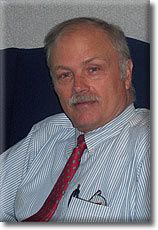
![Géopolitique : Union transatlantique, la grande menace, par Alain De Benoist [tribune libre] Géopolitique : Union transatlantique, la grande menace, par Alain De Benoist [tribune libre]](http://www.breizh-info.com/wp-content/uploads/2014/06/tafta.jpg)


